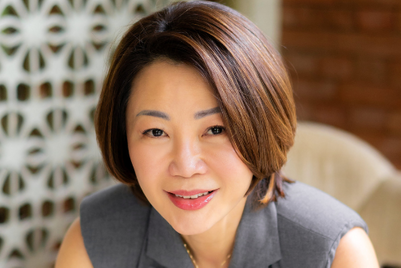
Across the world digital parenting continues to gain popularity. The global baby monitor market is set to grow by 8.5 percent by 2020, and alongside monitors we see a stunning array of smart devices popping up: smart sleep trackers, smart bottle-holders, smart prams, smart pacifiers and even smart diapers that send parents an alert when the baby needs changing. Today’s caretakers are the first generation to navigate this digital childcare space, and technology is starting to reshape ideas about parenting and its future.
Previously, many parents tried to log their newborns’ 'ins and outs' on paper, but now many are turning to apps to track this information. Applications like Babytracker and Baby+ let parents record their child’s growth, sleep, feedings, diaper-fillings and milestones. At the end of the week parents can see a visual overview of their baby’s developments in the form of sharable graphs and spreadsheets, and many find solace in the patterns that emerge.
Other tools use sensors and monitors to gather data. Starling, a clip-on wearable with a built-in microphone, records the number of words a baby hears each day. Tools like this are a modern-day equivalent of diary keeping, making parenthood a more quantifiable, supposedly science-based endeavour. While observing a deviation from the norm could of course worry some parents, it can also help them spot significant health or developmental issues that might otherwise have been missed.
| This article is part of the Cultural Radar series |
Gadgets that belonged to medical specialists or in hospitals have slowly but steadily started appearing in parents’ homes. Wi-fi connected wearable’s like the MonBaby clip-on, the Mimo onesie and the Owlet baby sock, for example, can keep tabs on a baby’s heart rate and breathing through the night. They alert parents to check on their child if irregularities are noticed. Of course, devices like these cannot replace regular checking up on a baby, but they can take some of the pressure off new parents by giving them more peace of mind during their relatively short nights.
As babies don't come with instruction manuals, many parents can attest that trying to figure out what they want or don’t want can be a challenge. The Sproutling is a smart baby monitor bracelet that claims to offer help in this area (the product has not yet launched). It keeps parents up to date on the baby’s physical status only when necessary and, interestingly, learns from the baby’s past behaviours to provide specialised suggestions. It can, for example, estimate how much longer the baby will sleep and what its mood will be like when it wakes, so that parents can prepare and feel more in control. The innovative device goes further than simply offering data—it claims to interpret and predict human behaviour and emotions.
While tools get smarter every day, digital parenting is not everyone’s cup of tea. Some caretakers and paediatricians question the practice of quantifying babies. They believe that having access to such an abundance of raw data without the corresponding medical guidance can unnecessarily fuel anxiety and worry. They also fear that these digital tools will make parents over-reliant on technology, making their babies yet another push-notification in their already busy lives.
Others, however, think digital parenting can make it feel less daunting and more fun by taking some of the guesswork away.
Brands like Sproutling have a strong role to play in the future of caretaking and can inspire other brands in this space to re-think what their products are truly about. A brand’s mission should not be to take over parenting altogether. It should be to team up with parents, help them make better sense of their babies and feel more confident about parenthood. Simply offering parents a constant and overwhelming stream of raw data and push notifications won’t create traction.
Instead, what modern caretakers need are simple, clever products that run silently in the background, that give unique tips, insights and predictions based on the baby’s data as well as the parents’ level of experience. As the field grows, we expect to see many new brands enter the market. And in a category that is already overcrowded with ‘baby aid’ products, those that make parents feel more empowered over time and have genuine benefits will be the ones that stay around.
Nelise Doornenbal is project director at Flamingo Singapore



.jpg&h=334&w=500&q=100&v=20250320&c=1)


.jpg&h=334&w=500&q=100&v=20250320&c=1)


.jpg&h=334&w=500&q=100&v=20250320&c=1)


.jpg&h=268&w=401&q=100&v=20250320&c=1)
.jpg&h=268&w=401&q=100&v=20250320&c=1)




.png&h=268&w=401&q=100&v=20250320&c=1)
